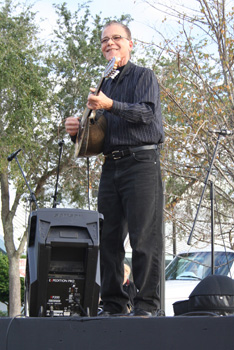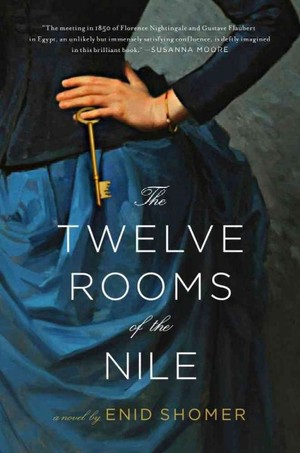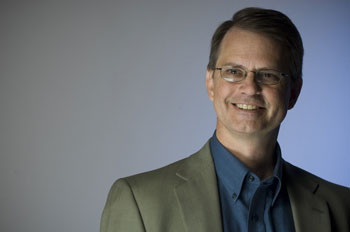by Tim Storhoff
All artists have a different creative process as their work moves from conception to fruition. Composers, particularly those writing for orchestra, face a unique set of challenges in bringing their creations to life. Even established composers have trouble hearing their pieces performed, bringing Pulitzer Prize winning composer Kevin Puts to write, “Every composition student is told never to write a long piece for orchestra because it will never be played. This is good advice.” While orchestras experiment with ways to reach new audiences, they still primarily perform selections from the classical music canon that has developed over the last 100+ years and mostly features dead, white, male European composers.
Throughout Florida, our universities are training the next generation of composers who all hope to hear their works move from the written page or computer screen to the concert hall. In Tallahassee, some of these composers have rallied musicians with a passion for contemporary music to guarantee that new pieces will be heard. In anticipation of the Tallahassee Composer’s Orchestra’s debut concert on Monday, November 25, I chatted with composer/conductor and orchestra co-founder Jamie Whitmarsh about the group and their upcoming performance.
 DCA: Jamie, this seems like a great project that will benefit not just the Tallahassee music community but promising young composers more broadly. Where did the idea for the Tallahassee Composer’s Orchestra come from?
DCA: Jamie, this seems like a great project that will benefit not just the Tallahassee music community but promising young composers more broadly. Where did the idea for the Tallahassee Composer’s Orchestra come from?
JW: The TCO began last spring when Joshua Burel and I were hanging out and talking about composition related topics. Somehow it evolved to where we were both quite optimistic about assembling a group from the ground up to perform new music. Additionally, from the beginning we were both in agreement about programming Daniel Nelson’s Clarinet Concerto. So we knew fairly early on that this wouldn’t necessarily just be a concert of music by Tallahassee composers, since Nelson currently lives in Europe.
DCA: The Division of Cultural Affairs really believes in the importance of supporting individual artists, since they create the works that fill our galleries and performance halls. Previous recipients of our Individual Artist Fellowship for music composition have used their awards to support the performance of their work, but putting an ensemble together is not easy. What challenges have you faced while forming the TCO?
JW: There is always a chance that something like this could have problems getting off the ground. Assembling a 50+ piece orchestra from scratch is no small task! I think there were a couple of advantages we had going into this. One advantage that helped us recruit was that Josh and I had performed with or worked in some capacity with many of the performers in the group. Additionally, we are very much in the trenches with these performers. For instance, Josh is the concertmaster and I am performing the solo part on Joseph Craven’s Concerto for Tenor Pan in C. So there is definitely an attitude between Josh and myself that we don’t want to ask our performers to do anything we wouldn’t do.
DCA: Florida has produced a number of successful composers, and this concert will be featuring pieces by yourself and Joshua Burel who are currently local. Are there any Florida composers you’ve come to admire or who have influenced your work?
JW: Since I’m from Oklahoma, I’m not as familiar with the composition culture in the lower half of Florida as I might be in a few years. I have certainly enjoyed working with Ladislav Kubik and the rest of the composition faculty at FSU. Clifton Callender’s Metamorphoses is a great piece. Working with Dr. Zwiilch is great as well; being able to form that relationship over time has been beneficial.

Jamie Whitmarsh leads the Tallahassee Composer’s Orchestra in rehearsing the Concerto for Tenor Pan in C. Photo by Bryan McNamara.
DCA: What can you tell me about the pieces that will be performed on Monday night?
JW: The concert opens with Crooked Sketch by Joshua Burel. It runs around 3 and a half minutes, and is designed to be a flashy concert opener. Following that will be my piece For Many Chairs (my crow some funny). If you were to pronounce the title several different ways, the nature of the piece might reveal itself a bit. The piece that will close the first half is Joseph Craven’s Concerto for Tenor Pan in C. For this performance, Joseph will be flying in to conduct the orchestra, as I am performing the solo part. The second half will begin with Joshua Burel’s work Incomplete (six), a fifteen minute work exploring the nature of Man’s incompleteness without God. Closing the concert will be Daniel Nelson’s Clarinet Concerto, with the solo part being performed by Lisa Kachouee. This piece is fantastic and will surely be a crowd pleaser!
DCA: After the group’s debut on Monday night, where do you see the Tallahassee Composer’s Orchestra going in the future?
JW: It is hard to say right now where the TCO may go in the future. Certainly the vibe in rehearsals is that this is something that should continue, and the performers all seem quite enthused. What form any potential future projects take is still anyone’s guess. Since we draw heavily from the student population at FSU, there is certainly a concern about overtaxing the performers or distracting them from their studies. At the same time, if this were established to be something that occurs annually, then performers could know that ahead of time and set aside room in their schedules. In the future, we’d like to see TCO concerts split the program between two works from Tallahassee based composers and two works from composers outside the area. We certainly believe a group like this is valuable and hope it will continue to premiere new works and expose listeners to more of the great composers working today.
The Tallahassee Composer’s Orchestra debut concert will be in the Opperman Music Hall on Florida State University’s campus at 8:00 PM on Monday, November 25. The concert is free and open to the public.













